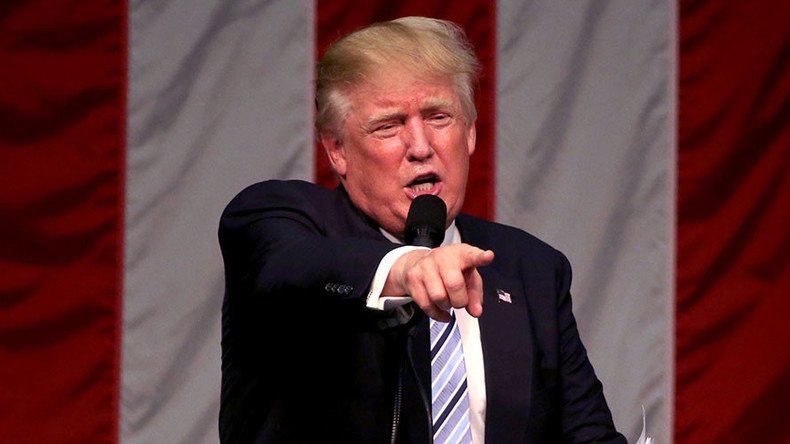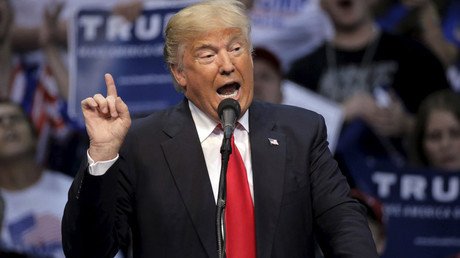'Extreme, extreme vetting': Trump's plan to fight 'radical Islam'

Arguing that political correctness had replaced common sense in America, Republican presidential candidate Donald Trump laid out his own vision for fighting terrorism. Here is what Trump considers common sense.
Speaking at Youngstown State University in Ohio on Monday, Trump insisted on naming “radical Islamic terrorism” the enemy and said he would fight it by introducing ideological screening tests, suspending immigration from certain countries, and reopening Guantanamo Bay, among other things.
While Trump has said this all before, this time Trump sounded more like an establishment Republican, declaring that “pride in our institutions, our history and our values should be taught by parents and teachers, and impressed upon all who join our society,” and that the US “system of government, and our American culture, is the best in the world and will produce the best outcomes for all who adopt it.”
The heavily-footnoted speech began with a litany of terrorist attacks in the US and Europe, from Fort Hood to Orlando and from Charlie Hebdo to the killing of a priest in Normandy, all claimed by Islamic State (IS, formerly ISIS/ISIL).
“We cannot let this evil continue,” the GOP presidential candidate said. “Nor can we let the hateful ideology of radical Islam – its oppression of women, gays, children, and nonbelievers – be allowed to reside or spread within our own countries.”
It was Clinton who prevailed upon Obama to intervene in Libya in 2011, Trump pointed out, making a comparison between the Middle East and North Africa in 2008 and today.
“The rise of ISIS is the direct result of policy decisions made by President Obama and Secretary of State Clinton,” he said.
“Our current strategy of nation-building and regime change is a proven, absolute failure,” Trump pressed on, bringing up his opposition to the 2003 invasion of Iraq, and quoting from a 2004 interview he gave to Esquire: “All of the reasons for the war were blatantly wrong. All of this, the death and the destruction, for nothing.”
Instead, he argued, US should focus on the goal of defeating radical Islam, “and any country which shares this goal will be our ally. We cannot always choose our friends, but we can never fail to recognize our enemies.” This this would mean finding common ground with Russia in the fight against IS, Trump said.
While avoiding specifics on the military front – by saying that revealing them would be like Clinton’s handling of official emails – Trump pivoted to discussing immigration, as the way to defeat radical Islam at home.
Under a Trump presidency, he said, the US “should only admit into this country those who share our values and respect our people.” He described the new ideological test for immigrants as “tough, even extreme vetting” and repeated a call to “temporarily suspend” immigration from “some of the most dangerous and volatile regions of the world that have a history of exporting terrorism.”
By contrast, Clinton wanted to admit over 600,000 refugees from such countries, at a cost of $400 billion, Trump said, accusing her of wanting to be “America's Angela Merkel" and pointing out that the Orlando shooter’s father – an immigrant from Afghanistan – was filmed sitting right behind Clinton at a rally in Florida, “obviously liking what she had to say.”
A Trump administration would establish a “commission on radical Islam” that would include moderates from the Muslim community, with the task to explain what radical Islam is and how to fight it, the candidate said. He also pledged to reopen the Guantanamo detention camp, try foreign combatants before military tribunals, and focus on “human intelligence.” While keeping the option of drone strikes, Trump said he would prefer to capture terrorist leaders for interrogation.













